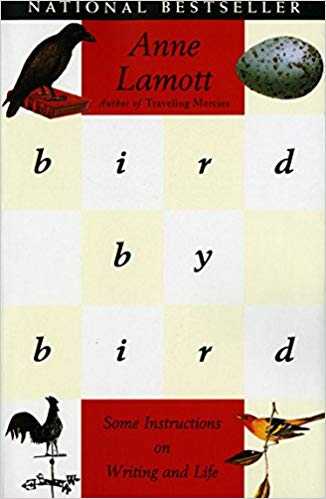Bird by Bird: Some Instructions on Writing and Life
by: Anne Lamott
I love short stories because I believe they are the way we live. They are what our friends tell us, in their pain and joy, their passion and rage, their yearning and their cry against injustice. We can sit all night with our friend while he talks about the end of his marriage, and what we finally get is a collection of stories about passion, tenderness, misunderstanding, sorrow, money; those hours and days and moments when he was absolutely married, whether he and his wife were screaming at each other or sulking around the house, or making love. While his marriage was dying, he was also working; spending evenings with friends, rearing children; but those are other stories. Which is why, days after hearing a painful story by a friend, we see him and say: How are you? We know that by now he may have another story to tell, or he may be in the middle of one, and we hope it is joyful.
…
Writing involves seeing people suffer and, as Robert Stone once put it, finding some meaning therein. But you can't do that if you're not respectful.
Let's think of reverence as awe, as presence in and openness to the world. The alternative is that we stultify, we shut down. Think of those times when you've read prose or poetry that is presented in such a way that you have a fleeting sense of being startled by beauty or insight, by a glimpse into someone's soul. All of a sudden everything seems to fit together or at least to have some meaning for a moment.
God's joy moves from unmarked box to unmarked box,
from cell to cell. As rainwater, down into flowerbed.
As roses, up from the ground.
Now it looks like a plate of rice and fish,
now a cliff covered with vines,
now a horse being saddled.
It hides within these,
till one day it cracks them open.
There is ecstasy in paying attention.
But then I wouldn't.
Ábove me, wind does its best
to blow leaves off
the aspen tree a month too soon.
No use wind. All you succeed
in doing is making music, the noise
of failure growing beautiful.
